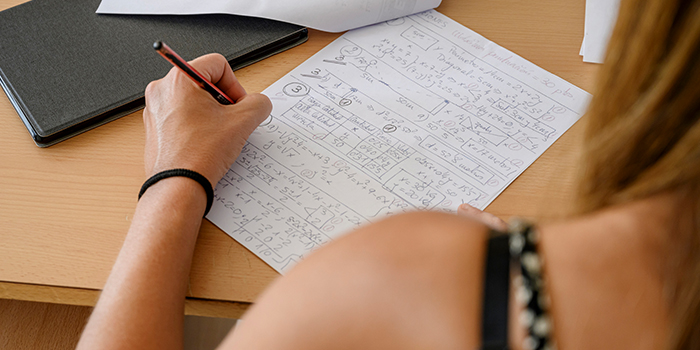When you’re in your flow state, you'll be able to boost your productivity which ensures you'll retain the information you're learning about. In this article, we explore what flow state is and the steps you can take to stop procrastinating to improve your revision performance.
flow state meaning
Flow state of mind describes the feeling when you're so ebngrossed in an activity that you don’t think about anything else. When you're feeling 'in the zone,' this is when you know you've reached your flow!
According to the psychologist, Mihaly Csíkszentmihályi, who has carried out extensive research into flow, it’s can be defined as:
‘The holistic sensation people feel when they act with total involvement.’
how to find your flow
Here's how to use your flow to boost revision performance:
4 exercises to help tap into your flow
These exercises can help you find your flow, whether you’re revising or at work:
1. When were you last working in a flow state? Identify the specific details - what was the type of work, where were you working, who were you working with and did you have a deadline?
2. When you were last in a flow state, as identified above, what skills were you using? Do you have time to do more challenging tasks that better match your skillset?
3. What practical steps can you take to set up the conditions for more flow working?
4. What should you stop doing that prevents you from finding time to work in flow?
While it may not be something you’ve really thought about until now, finding your flow is incredibly useful for boosting productivity.
benefits of a flow state of mind
The advantages of feeling your flow are reportedly widespread and span beyond making you enjoy certain activities. Benefits include:
- greater fulfilment - you tend to enjoy what you’re doing more, which is a rewarding and fulfilling experience
- increased happiness - studies have linked flow to greater levels of happiness and satisfaction
- enhanced intrinsic motivation - you're more inclined to embark on an activity for the fun or challenge of it rather than because you feel pressure or are going to be rewarded
- improved engagement - a full involvement in the tasks they are carrying out
- greater performance - researchers have found that flow can enhance performance in a range of areas, including teaching, learning, creative arts and sports-related activities






